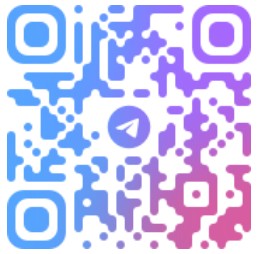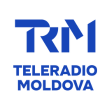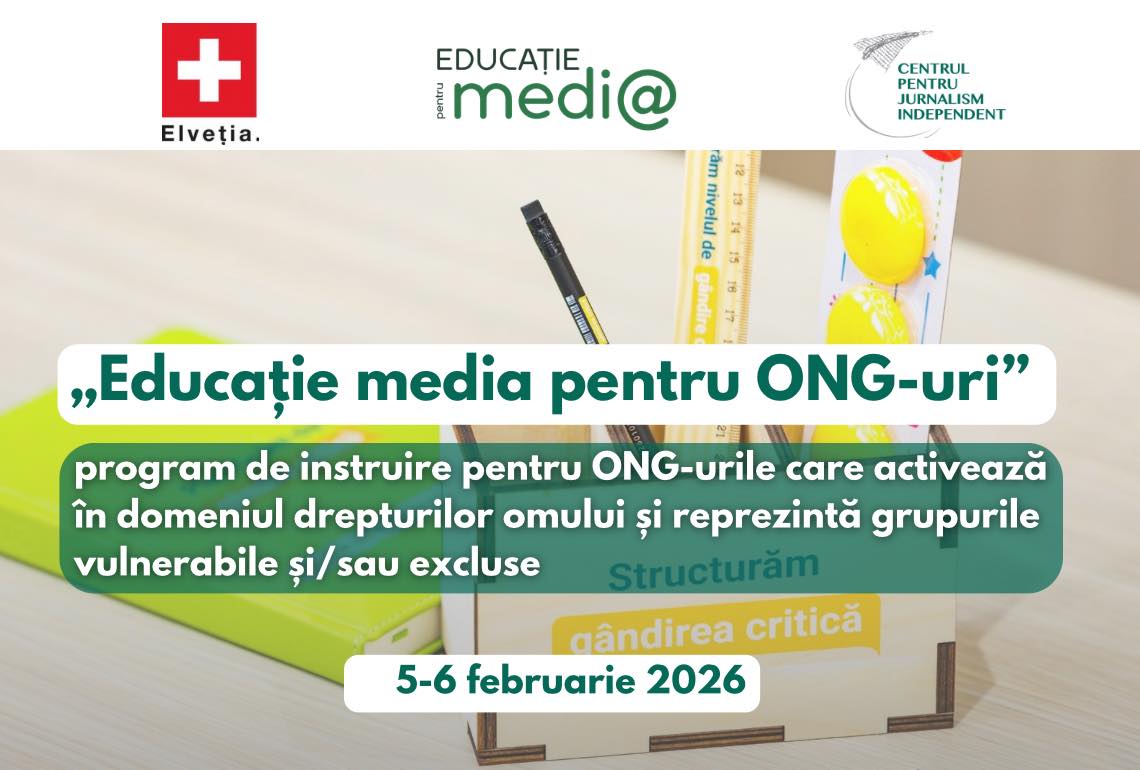Organizații vizate:
Achiziții de bunuri și contractări de servicii
- Detalii
- Categorie: Achiziție bunuri, Contractare Servicii
Inviting assessment specialists for baseline and post project measuring
Informațiile prezentate în articolul de mai jos pot să nu mai fie actuale sau să nu mai reflecte activitățile și programele curente. Anunțul este păstrat în arhivă pentru a asigura transparența și accesul public la informațiile despre inițiativele și proiectele implementate anterior.
Terms of reference for the measurement of the progress in the media literacy competencies of the target group representatives in the framework of the “Initiative for Media and Information Literacy (MILI) in Moldova”
Background
DVV International is the Institute for International Cooperation of the Deutscher Volkshochschul-Verband e.V. (DVV), the German Adult Education Association. DVV represents the interests of the approximately 900 adult education centres (Volkshochschulen - VHS) and their state associations, the largest further education providers in Germany. As the leading professional organization in the field of adult learning and education (ALE) and development cooperation, DVV International has committed itself to promote the right for lifelong learning worldwide and has been implementing country programmes of development cooperation in Africa, Asia, Latin America, and Europe for more than 50 years.
Currently, Moldova faces the challenge of internal and external propaganda and disinformation, especially during election periods, when these and other methods pave the way for pro-Russian candidates. The adult population lacks the skills necessary to critically reflect on the media landscape and make assumed decisions. On the other hand, there are limited opportunities for young people to develop their media literacy skills. Media literacy education courses in schools are offered as optional subjects.
In this context, the DVV International, together with two local partner organisations - the Association of the Independent Press (https://api.md/) and the Youth Media Centre (https://tineri.md/) - launched the project "Initiative for Media and Information Literacy (MILI) in Moldova" on 1 August 2024.
The overall objective of the project is to contribute to strengthening the democratic resilience of Moldovan society in the fight against Russian propaganda and fake news attacks.
The 17-month project, funded by the German Federal Foreign Office, aims at improving media literacy of Moldovan adults in general, with a focus on the rural population from 22 localities in 9 districts in the northern part of the Republic of Moldova. The project activities will improve adults' and young people's ability to think critically about the information they consume and to develop reasoned skills in navigating the media landscape, resisting the abuse of fake news, and making informed choices.
Objectives of the assignment
To measure the project progress in improving the media literacy competences (knowledge-skills-attitudes) of up to 3.000 project participants (target group). The measurements will contain two stages: initial data/baseline collection (in Q4 2024 & Q1 2025) and the final data/endline collection (in ca. Q3 2025). Each stage of the research project will be agreed and paid for separately.
The measurement of the increased media literacy competences should cover the ability to easier recognize manipulation and fake news, and the ability of the improved critical thinking and reflection.
Target groups of the project
1: Adult participants (50+ age group) from 22 rural communities in 9 districts in the northern part of the Republic of Moldova participating in project activities (total number of targeted participants in the project ca. 1.760 – 2.200 people).
The project focuses on increasing adult participants' media literacy competencies including the ability to more easily recognise and critically reflect on negative extremal manipulation and fake news.
Considering the significant influence of disinformation and propaganda on political decisions during presidential elections and referendum in 2024 and upcoming parliamentary elections in Moldova in 2025, the project topics may be sensitive for the target group, and they may hesitate to participate in the survey or may generate an aggressive attitude among participants.
2: Youth participants (adolescents/young adults) from 22 rural communities in 9 districts in the northern part of the Republic of Moldova participating in project activities (total number of targeted participants ca. 110-120 people).
The project will focus on improving media literacy competencies including the multimedia content design/creation skills of youth/young adults trained as young digital leaders. In view of the typically high mobility in the age group of the target group, there is a risk that some participants will drop out from the project.
Methodology
The methodology of the assignment should consider following aspects:
- Quantitative data collection method should prevail in this assignment. Elements of the qualitative assessment methods could be also foreseen in the proposed methodology;
- For the first target group an appropriate sample should be suggested;
- For the second target group it is desired that the assessment will cover ca. 75% of the target group /this means coverage of participants of the three out of four bootcamps for young digital leaders, which are planned in the period end of December 2024 – end of February 2025/.
Security and data protection: Survey methods should ensure the protection of respondents' personal data. All approached respondents must give their consent to participate in this research project.
Expected Deliverables
- Inception report, consisting of the scope, detailed methodology, instruments, expected outcomes, and timeline of survey;
- Final reports in an MS Word document with a visualization of key data (up to 15-20 pages excluding annexes);
- Annexes to the Final report with supporting documents;
All outputs of the assignment must be prepared in English. The questionnaire should be prepared in Romanian and Russian for the target audience.
Preliminary Timeline
Stage 1:
- Deadline for the submission of the proposals: November 29, 2024, 23:59 CET
- Informing participants about the results of the tender: by December 9, 2024
- Conclusion of the contract: by December 11-12, 2024
- Submission of the Inception report: by December 18, 2024
- Data collection and analysis: End of December 2024 – End of February 2025
- Submission of the preliminary report for the feedback: in ca. March 2025
- Finalisation of the Report: in max. April 2025
Stage 2:
- Data collection and elaboration of the final report: ca. in Q3-Q4, 2025.
Budget
The maximum available budget for each of the indicated two stages is ca. 4.000-5.000 EUR.
Eligibility of the bidders
Individual experts, teams of experts, research centres, NGOs, and other agencies, familiar with the Moldovan context and subject of the assignment are invited to participate in the tender.
Qualifications of the bidders
- Comprehensive experience (minimum 5 years) in conducting research, analytical materials, assessments, and/or evaluations);
- Academic background from social sciences or other relevant fields (minimum Master’s degree for a lead researcher);
- Prior Working experience with NGOs and deep knowledge of media literacy issues would be an asset;
- Excellent oral and writing skills in Romanian, Russian and English.
How to apply
The presented proposals should include the following components:
- Cover letters with description of own experience (please clearly provide evidence of such experience);
- CV(s) of interested expert / members of the team of experts;
- Detailed description of the proposed methodology, including the approach to sample selection;
- Confirmation of willingness to comply with the proposed timeline of the assignment or indication of an adjusted period of work (with a maximum extension of 2-3 weeks);
- Budget calculation based on the expert’s days and daily rates (in EUR).
Offers should be submitted by November 29, 2024, 23:59 CET to the following addresses: kvatchadze@dvv-international.de; scutaru-gutu@dvv-international.md and dabija@dvv-international.md
Questions may be sent till 21 November 2024 to the e-mail address dabija@dvv-international.md. Project Logframe could be requested under the indicated address as well.
Rights Ownership
DVV International will have an exclusive and unrestricted right to use the results of this research. The Provider will have permission to use survey results only for non-commercial purposes. The transfer of the usage rights to third parties is prohibited.
- Data Integration Specialist (NPSA-10) - UNDP Moldova
- Asociația Obștească „The Moldova Project” (TMP) lansează concurs pentru ocuparea poziției de Specialist Comunicare
- BNM angajează Expert principal responsabil de reglementarea evidenței contabile în BNM
- Public Institution National Environmental Projects Implementation Office (P.I.NEPIO) - announcement of selection of international consultant
- Agenția de Guvernare Electronică relansează concursul de angajare pentru suplinirea postului vacant de Dezvoltator software (Kotlin developer)
Achiziții și Contractări pe Telegram
Nu pierdeți niciun anunț de achiziție bunuri/contractare servici postat pe site! Urmăriți Canalul dedicat pe Telegram:

Top organizatii
- Delegația Uniunii Europene (UE)
- Ambasada SUA
- Fundatia Soros-Moldova
- Centrul pentru Jurnalism Independent (CJI)
- Asociația Promo-LEX
- Fundatia Est-Europeană
- Asociatia Presei Independente (API)
- Institutul pentru Politici și Reforme Europene (IPRE)
- Deutsche Gesellschaft für Internationale Zusammenarbeit (GIZ)
- IDIS Viitorul
2025 CIVIC DIGITAL SOLUTIONS
Email: support@portal.civic.md








